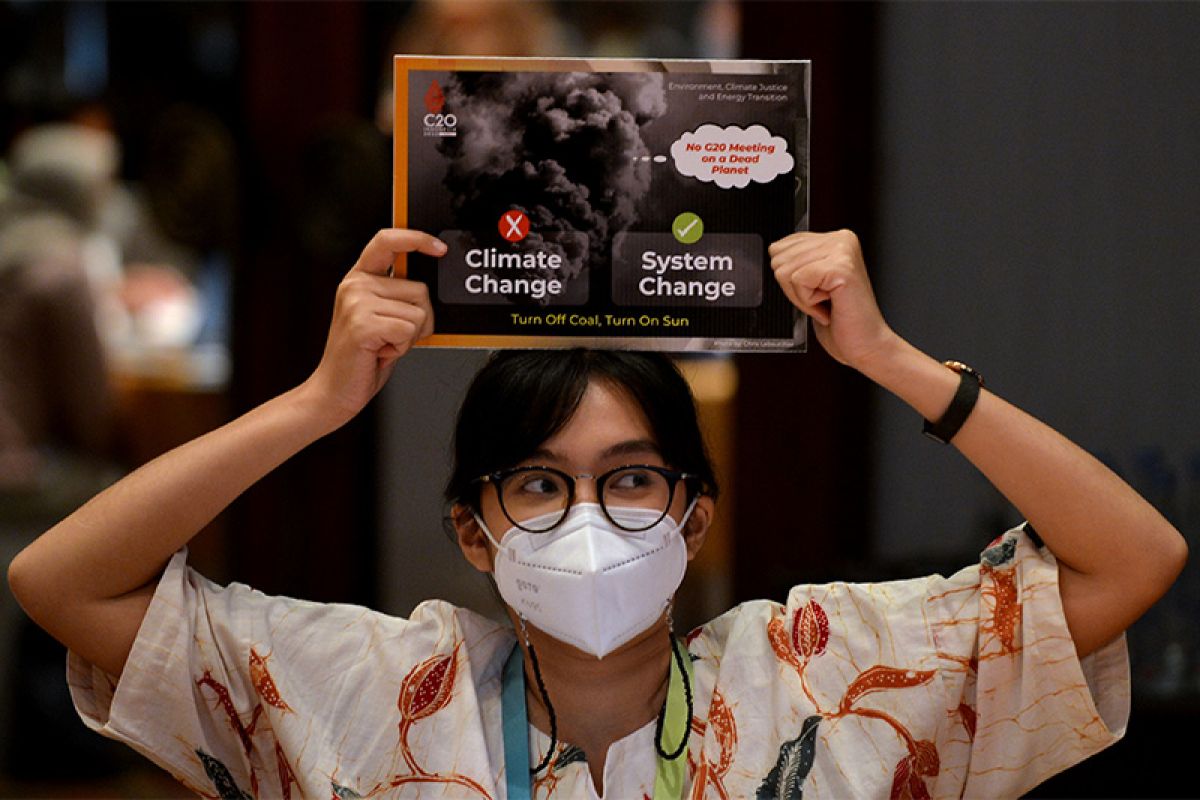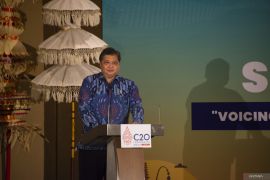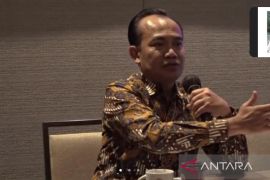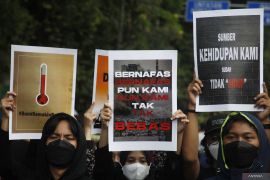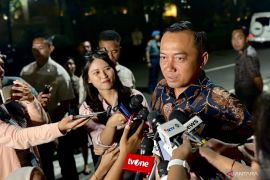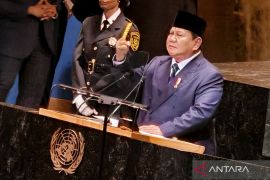The Indonesian G20 Presidency must be able to resolve social, economic, health, environmental, humanitarian and education issues through adequate and quality development and humanitarian financingJakarta (ANTARA) - Indonesia's G20 Presidency holds the fate of people worldwide, including the poor from lower- and middle-income countries.
Recognition of the importance of collective action and inclusive collaboration among major developed countries and emerging economies around the world has always been the core purpose of the G20.
The global pandemic has affected every aspect of society, from health, education, to international trade.
At the same time, gaps in countries’ capacities to address the crisis continue to prevent the world from fully addressing the common problems and crises facing us right now.
Understanding the challenges and the need for collective action, Indonesia will focus on three main pillars for its G20 2022 Presidency: Global Health Architecture, Sustainable Energy Transition, and Digital Transformation.
Through these pillars, Indonesia will continue to take the lead in ensuring equitable access to COVID-19 vaccines, promoting sustainable and inclusive economic development through MSMEs' participation and digital economy.
Related news: KPK to re-highlight four priority issues at 2nd ACWG G20
Indonesia will also concurrently work towards fulfilling the aspiration to continue to improve our collective capacity in securing shared prosperity among nations through various reform efforts in global taxation, stronger cooperation in fighting corruption, deepening of infrastructure financing, and pushing for a more democratic and representative international cooperation.
The Civil 20 (C20) engagement group urges leaders of G20 countries to pay more attention to civil society issues and be more transparent in the policy-making process.
"Why is the Civil 20 (C20) important? It is because, as part of a democratic society, the government must open up spaces for participation and transparency together to roll out policies that benefit the community at large," Binny Buchori of the C20 steering committee stated.
According to Buchori, the involvement of civil society organizations in the process of policy-making is very important, so the policies are truly inclusive and no one is left behind.
“Hence, it is civil society organizations that monitor policies,” Buchori stated.
C20 is one of the participation forums attended by civil society organizations from across the world as well as international partners.
Thus, the C20 steering committee has urged the governments to accommodate the aspirations of the world's civil society, which is divided into seven working groups.
Related news: Y20: Jakarta involves youths to formulate public policies
The seven working groups comprise first, vaccine access and global health; second, environment, climate justice, and energy transition; third, development, sustainable development goals (SDGs), and humanity; fourth, education, digitization, and civic space; fifth, gender equality; sixth, anti-corruption; and seventh, taxation and sustainable finance.
Business as usual is no longer workable to cope with the challenges of increasing global systemic risks.
The interlinkages of health and economic crisis, social conflict and environmental devastation and climate change hamper the realization of global development and exacerbate the gaps in access to resources and inequalities among countries when dealing with post-pandemic recovery.
C20 calls on the G20 leaders to reaffirm their commitment to leaving no one behind during the current transition period of the post-pandemic world that has seriously impacted people across the globe, particularly citizens of poor and developing countries.
The Indonesian G20 Presidency must represent the developing countries and the power of the global south and deliver an agenda that closely impacts the people’s daily lives.
The G20 policy-making process could have been more transparent. Implementation of commitments remains a challenge and priority issues continue to be discussed without sufficient inputs from groups that are most affected by the recommended policy outcomes.
“We call on G20 countries to match their rhetoric with action and meaningfully deliver on their pledges. The world has waited too long for this kind of leadership” Coordinator of the C20 Anti-Corruption W. G. Dadang Trisasongko stated.
The pandemic has caused setbacks for vulnerable groups, as 1.6 billion learners and 73 percent of youth aged 18-29 years had been impacted by the post-pandemic circumstances to access the quality of learning for education, training, and employment in 112 countries.
Related news: Partnership for financial inclusion is important G20 agenda: Minister
Particular attention should also be given to girls, students with disabilities, those in disaster areas who are facing double hazards, and other marginalized children and youth.
In addition, the education sector still encounters a digital gap. Learners with no and limited access are still left behind, and this issue remains unsolved.
As the quality of education deteriorates and digitalization processes have accelerated the transformation of the job market, young people will hardly adapt to the future of work, given the "skills gaps."
Amid the alarming democratic setback that the world is facing today, the G20 Presidency must also give serious attention to the issue of civic space.
C20 draws attention to the global shrinking space phenomenon that affects civil freedom in all countries.
“Among the G20 members, only two countries are in the open civic space; while the rest, representing more than half of the world population, are either narrowed, obstructed, repressed or closed,” the C20 Civic Space Sub-Working Group Coordinator Gita Damayana stated.
The C20 Vaccine Access and Global Health Working Group reminds G20, as the 20 largest economies, that any legitimate decision will influence and impact the global community.
The Financial Intermediary Fund (FIF) promoted by the G20 should focus on addressing existing inequalities to prevent future pandemics by prioritizing right-based, transformative, and people-centred approaches.
The governing body of FIF needs to represent strong representative countries from Low-Income Countries (LICs) and Low and Middle-Income Countries (LMICs), as well as communities and civil society.
“The Indonesian G20 Presidency must be able to resolve social, economic, health, environmental, humanitarian and education issues through adequate and quality development and humanitarian financing,” Chair of C20, Sugeng Bahagijo, remarked.
Equally important is the aspect that there should be no delay in achieving SDGs, ending corruption, fighting for sustainable finance and tax justice, assisting debt settlements in poor countries and gender equality.
Related news: RI's G20 Presidency prioritizes projects supporting economy recovery
Many people in the Low & Middle-Income Countries (LMICs) are relying upon the G20 leadership, Bahagijo said.
In doing so, it is important to urge G20 to listen to the voices of the people, to be transparent in the policy-making processes and to generate policies that adopt a rights-based approach to lessen international development disparities and global economic recovery gaps that prioritize vulnerable groups, women, children, youth, people with disabilities, migrant workers and people at risk of economic instability, inequality and climate crisis, he remarked
The C20 calls on G20 Leaders to give greater attention and draw concrete actions to overcome daily issues at the grassroots level.
The openness in involving and engaging with civil society in every G20 process determines whether the G20 has taken into consideration the aspirations and voices of the citizens of the world.
Civil 20 (C20) urges G20 leaders to listen and take action on the issues that directly impact people's daily lives on their agenda, he remarked.
The pandemic has pushed at least 20 million people into extreme poverty.
This is on top of the 82.4 million people, who were forcibly displaced, and 161 million people, who have to suffer from acute food shortages.
People need to question whether G20 has heard the voices of the people to address the multidimensional crisis worldwide.
Related news: G20 leaders should act on issues impacting people's lives: C20
Related news: C20 asks leaders to pay attention to civil society issues
Editor: Fardah Assegaf
Copyright © ANTARA 2022
